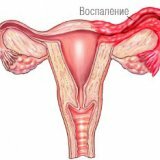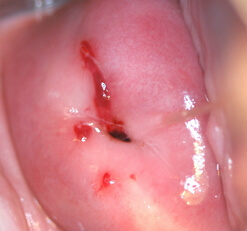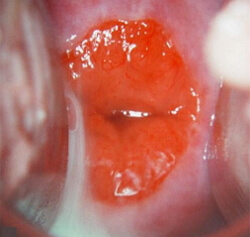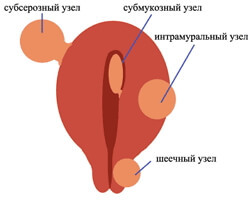Medicines for inflammation of appendages

A common cause, which causes women to turn to a gynecologist, are inflammation of the appendages( ovaries, fallopian tubes, uterus).Most often, women face ovarian inflammation( salpingo-oophoritis) and tubes accompanied by endometritis - inflammation of the uterus. Less common is salpingitis( a separate inflammatory process of the uterine tube) or only oophoritis( inflammation of the ovaries).This is primarily due to the fact that the sexual organs are closely related in the small pelvis, so that inflammation of one organ alone can lead to inflammation of other organs.
Acute inflammation of the appendages is treated in the hospital. In an inpatient is also treated exacerbation of chronic inflammation, which is accompanied by severe symptoms. Light forms of inflammation can be treated at home. At an acute salpingo-oophoritis in a hospital it is necessary to spend 7-10 days.
Treatment of inflammatory processes
Any inflammatory process of uterine appendages is treated with antibiotic therapy. Medicines for inflammation of the appendages are appointed empirically, taking into account all possible pathogens.
Antibiotic therapy of PID( inflammatory diseases of the pelvic organs) is aimed at providing elimination of a wide range of pathogens.
The first-line regimen includes a combination of 3-generation cephalosporins( ceftriaacon, cefotaxime) with metronidazole. Prescribed inhibitor-protected aminopenicillins.
Alternatively, lincosamides are administered in combination with fifth generation aminoglycosides, carbapenems, fluoroquinolones( ofloxacin, ciprofloxacin) with metronidazole. Because of the high risk of Chlamydia infection, patients are prescribed concomitant doxycycline or macrolides.
Usually antibacterial therapy of PID, begins with drugs that are administered intravenously. Then there is a transition to oral intake of drugs.
Light forms of PID can be treated on an outpatient basis. In this case, drugs with high bioavailability are administered orally, that is, inside.
Combination of antibiotics with detoxification therapy: IV solutions are administered, mafusol ©, hemodez ©, 5% solution of glucose ©, polydes ©, rheopolyglucin ®.In addition, intravenously prescribed protein preparations, vitamins.
If necessary, the doctor can prescribe the patient analgesics, ice on the stomach, local anti-inflammatory drugs in the form of candles. After the general condition is stabilized and the acute inflammatory process subsides, phonophoresis is usually performed with magnesium, calcium or copper( carried out on a cycle).
In some cases, a course of anti-relapse treatment is being conducted, which consists in the appointment of physiotherapy procedures and sanitary treatment. If a woman has an infection, then mandatory examination of the sexual partner and further treatment, if necessary. During the treatment of salpingo-oophoritis it is recommended to abstain from sexual activity. Also, you should refrain from drinking alcohol, as some antibiotics with alcohol can not be taken.
Lastly, we give a more extensive list of drugs that are most often prescribed by a gynecologist for the treatment of inflammation of the appendages.
Antibiotics:
- Amoksiklav
- Azithromycin( Sumamed)
- Doxycycline( Medomitsin, JUnidoks Soljutab, Doksinat, Doksibene)
- Hexamethylenetetramine( Urotropin)
- Metronidazole( Trihobrol, Trihozol, Clione, flag Trichopolum)
- Clindamycin( Klindatsin, Klindafer, Klindafer, Dalacine, Klimitsin, Klinoksin)
- Gentamicin( Gramamicin, Gentosep)
- Ofloxacin
- Nalidixic acid( Negra, Nevigramon)
- Cefotaxime( Claforan, Taksim)
- Roxithromycin( Rulid)
- Ciprofloxacin( Aquacycra, Afenoxin, Iphi-Cypro, Arfl(Oramax, Cefaxon, Rocefin, Megion)
Vitamin preparations:
- Vitamin E Rutin
- Vitamin C( Redoxin, Ciproxine, Liprochin, Medocycline, Quipro, Liprochin, Medocycin, Quipro, Microfloq, Proxacin, Recipro, Ceprova,, Biovital Vitamin C, Celascon, UPSA C)
Painkillers:
- Metamizole sodium( Baralgin, Analgin, Veralgan, Nospaz, McSigan, Spazvin, Tempalgin, Spasmalgon)
- Acetylsalicylic acid( Aspirin, Asalgin, Aspirin Upsa, Aspilight, Fortalgin).



